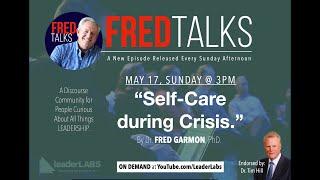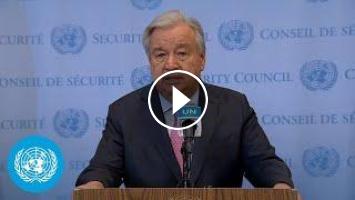The Secretary-General is expected to speak to reporters at the Security Council stakeout on the situation at the Blue Line.
Secretary-General António Guterres voiced his “profound concerns” about escalation between Israel and Hezbollah along the Blue Line, reiterating that “the risk for the conflict in the Middle East to widen is real -- and must be avoided.”
Guterres today (21 Jun) spoke to reporters in New York.
“Let’s be clear: The people of the region and the people of the world cannot afford Lebanon to become another Gaza,” the UN chief said.
He continued, “On both sides of the Blue Line, many lives have already been lost, tens of thousands of people have been displaced, and homes and livelihoods have been destroyed. Bushfires sparked by explosions are further devastating communities and the environment. Unexploded ordnance and remnants of war litter the landscape.”
Guterres said, “These pose additional threats to people in both Israel and Lebanon and to United Nations and humanitarian personnel.”
The UN chief stressed, “The parties must urgently recommit to the full implementation of Security Council resolution 1701 and immediately return to a cessation of hostilities.”
“Civilians must be protected. Children, journalists and medical workers should never be targeted. And displaced communities must be able to return to their homes,” he added.
“The world must say loudly and clearly: immediate de-escalation is not only possible – it is essential,” the Secretary-General reiterated.
He continued, “There is no military solution. Further military escalation will only guarantee more suffering, more devastation to communities in Lebanon and Israel, and more potentially catastrophic consequences for the region.”
“It is time for reason and rationality. It is time for practical and pragmatic engagement by the parties to the diplomatic and political avenues available to them,” Guterres stressed.
The UN chief told reporters that the world body is “actively engaging to promote peace, security and stability, in line with Security Council Resolution 1701. UN peacekeepers – UNIFIL - are on the ground working to de-escalate tensions and help prevent miscalculation.”
“The cessation of hostilities and progress toward a permanent ceasefire is the only durable solution,” Guterres stated, adding that the United Nations” fully supports diplomatic efforts to end the violence, restore stability and avoid even greater human suffering in a region that has seen far too much."
The Secretary-General once again pressed for an immediate humanitarian ceasefire in Gaza, the immediate and unconditional release of the hostages and a real pathway to a two-State solution.
Asked about humanitarian aid delivery, Guterres said that inside Gaza, “lawlessness is total.”
He said, “We see extreme difficulty in distributing inside Gaza. So the problem is not only to bring things to Gaza, there must be a mechanism guarantee that there is a minimum of law and order that allows for the distribution to take place. And that's why a ceasefire is so necessary to then properly organize and implement a plan for that purpose.”
Asked about the recent agreement between the the Democratic People's Republic of Korea (DPRK) and the Russian Federation, Guterres said, “There are sanctions approved by the Security Council in relation to the DPRK. Any relationship that any country with DPRK including the Russian Federation, must entirely abide by those sanctions.”
Secretary-General António Guterres voiced his “profound concerns” about escalation between Israel and Hezbollah along the Blue Line, reiterating that “the risk for the conflict in the Middle East to widen is real -- and must be avoided.”
Guterres today (21 Jun) spoke to reporters in New York.
“Let’s be clear: The people of the region and the people of the world cannot afford Lebanon to become another Gaza,” the UN chief said.
He continued, “On both sides of the Blue Line, many lives have already been lost, tens of thousands of people have been displaced, and homes and livelihoods have been destroyed. Bushfires sparked by explosions are further devastating communities and the environment. Unexploded ordnance and remnants of war litter the landscape.”
Guterres said, “These pose additional threats to people in both Israel and Lebanon and to United Nations and humanitarian personnel.”
The UN chief stressed, “The parties must urgently recommit to the full implementation of Security Council resolution 1701 and immediately return to a cessation of hostilities.”
“Civilians must be protected. Children, journalists and medical workers should never be targeted. And displaced communities must be able to return to their homes,” he added.
“The world must say loudly and clearly: immediate de-escalation is not only possible – it is essential,” the Secretary-General reiterated.
He continued, “There is no military solution. Further military escalation will only guarantee more suffering, more devastation to communities in Lebanon and Israel, and more potentially catastrophic consequences for the region.”
“It is time for reason and rationality. It is time for practical and pragmatic engagement by the parties to the diplomatic and political avenues available to them,” Guterres stressed.
The UN chief told reporters that the world body is “actively engaging to promote peace, security and stability, in line with Security Council Resolution 1701. UN peacekeepers – UNIFIL - are on the ground working to de-escalate tensions and help prevent miscalculation.”
“The cessation of hostilities and progress toward a permanent ceasefire is the only durable solution,” Guterres stated, adding that the United Nations” fully supports diplomatic efforts to end the violence, restore stability and avoid even greater human suffering in a region that has seen far too much."
The Secretary-General once again pressed for an immediate humanitarian ceasefire in Gaza, the immediate and unconditional release of the hostages and a real pathway to a two-State solution.
Asked about humanitarian aid delivery, Guterres said that inside Gaza, “lawlessness is total.”
He said, “We see extreme difficulty in distributing inside Gaza. So the problem is not only to bring things to Gaza, there must be a mechanism guarantee that there is a minimum of law and order that allows for the distribution to take place. And that's why a ceasefire is so necessary to then properly organize and implement a plan for that purpose.”
Asked about the recent agreement between the the Democratic People's Republic of Korea (DPRK) and the Russian Federation, Guterres said, “There are sanctions approved by the Security Council in relation to the DPRK. Any relationship that any country with DPRK including the Russian Federation, must entirely abide by those sanctions.”
- Category
- United Nations
- Tags
- UN, United Nations, UNGA
Be the first to comment













